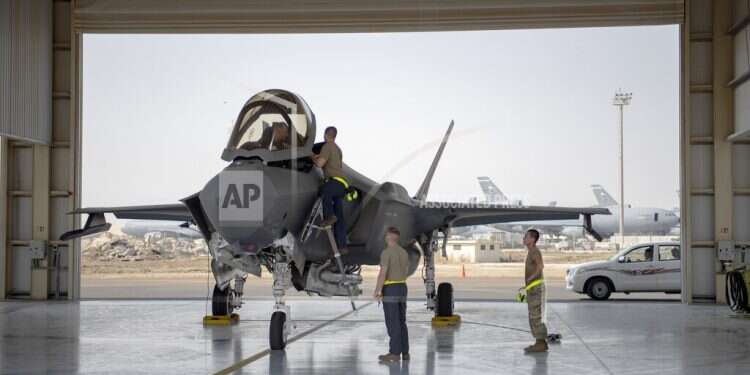The Senate fell short Wednesday trying to halt the Trump administration's proposed $23 billion arms sales to the United Arab Emirates.
Follow Israel Hayom on Facebook and Twitter
Senators argued that the sale of F-35 fighter jets and drones was unfolding too quickly and with too many questions.
The administration has billed it as a way to deter Iran, but the UAE would become the first Arab nation to possess the stealth warplanes.
"Can a lasting peace be purchased with more weapons?" asked Kentucky Senator Rand Paul in a speech ahead of the vote.
Congress has shown a willingness to confront Trump in one main area – on defense policy. But on Wednesday, the effort to turn back the arms sales failed to reach the 51-vote majority needed for passage. Trump was expected to veto the two resolutions anyway.
The showdown over the sale is potentially a final power play between the executive and legislative branches in the final weeks of Trump's presidency. The Senate will take up the broader defense bill soon.
Connecticut Senator Chris Murphy said in a statement after the vote that he was eager to work with President-elect Joe Biden's administration "to take a closer look at each of these sales before any transfers are completed."
Murphy said the UAE's track record in war-torn Yemen and Libya, and its "complicated" relationships with China and Russia raise more questions than answers.
"I'm not here to say that we shouldn't be in the security business with the UAE," Murphy, a member of the Senate Foreign Relations Committee, said during the debate.
But, he said, "without resolving those issues, is this the moment to be selling for the first time ever F-35s, armed drones into the heart of the Middle East?"
The arms sale emerged following the US-brokered Abraham Accords, which normalized relations between the UAE, Bahrain, and Israel.
In notifying Congress last month, US Secretary of State Mike Pompeo authorized the sale, saying it was in recognition of the "deepening relationship" with the UAE and its need to deter threats from Iran.
Pompeo said the "historic agreement" reached with the Abraham Accords offered a "once-in-a-generation opportunity" to transform the region's "strategic landscape."
Subscribe to Israel Hayom's daily newsletter and never miss our top stories!




